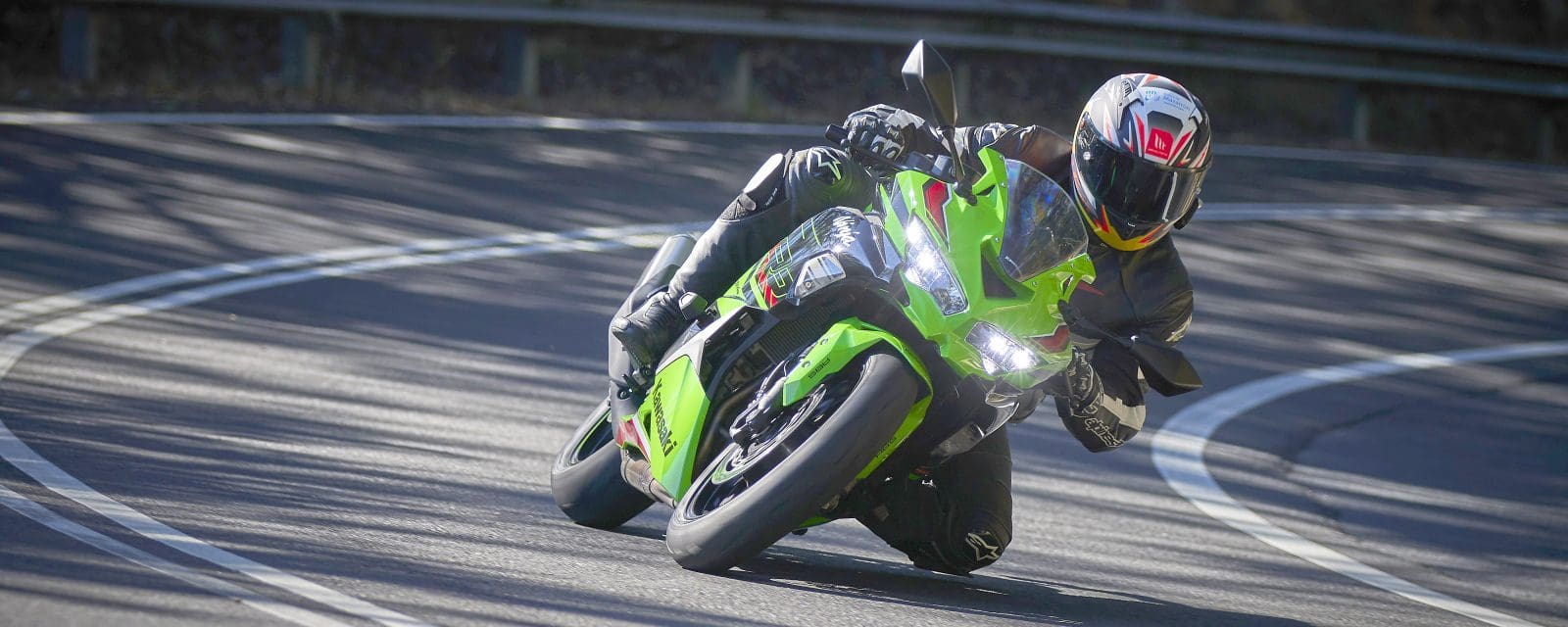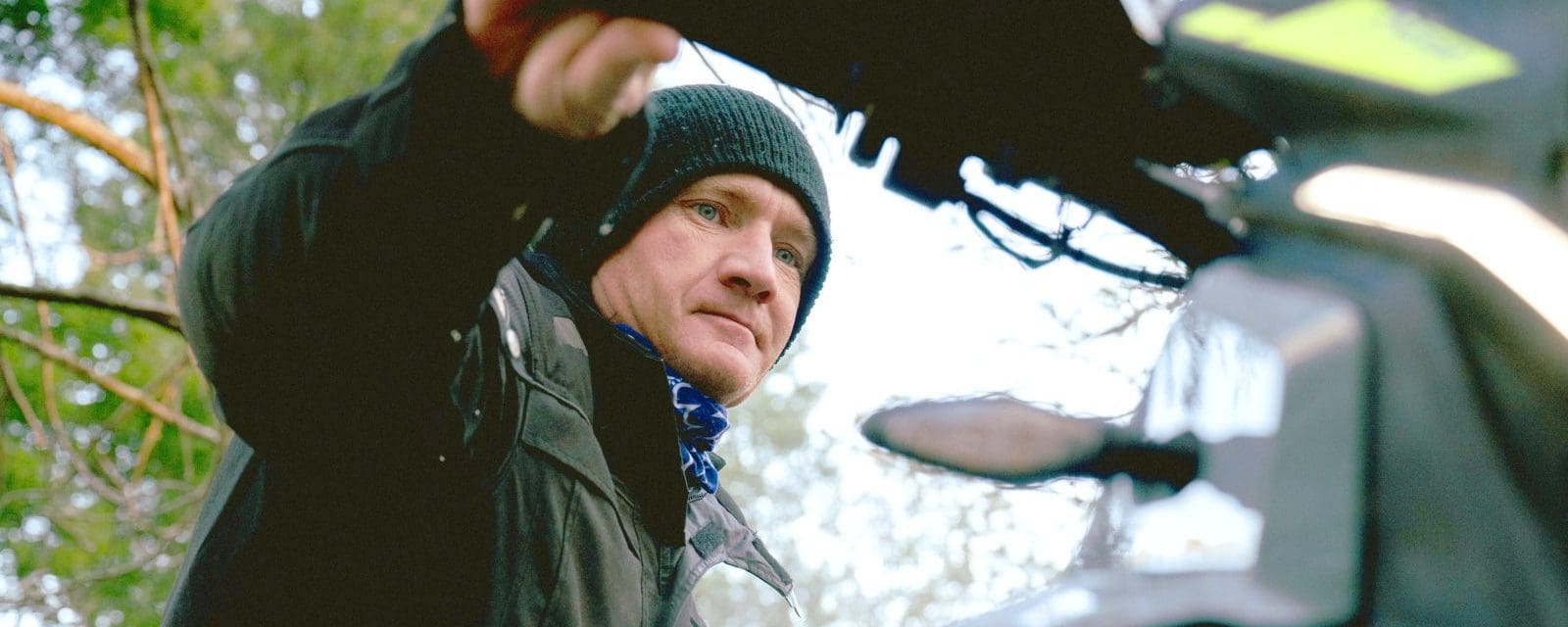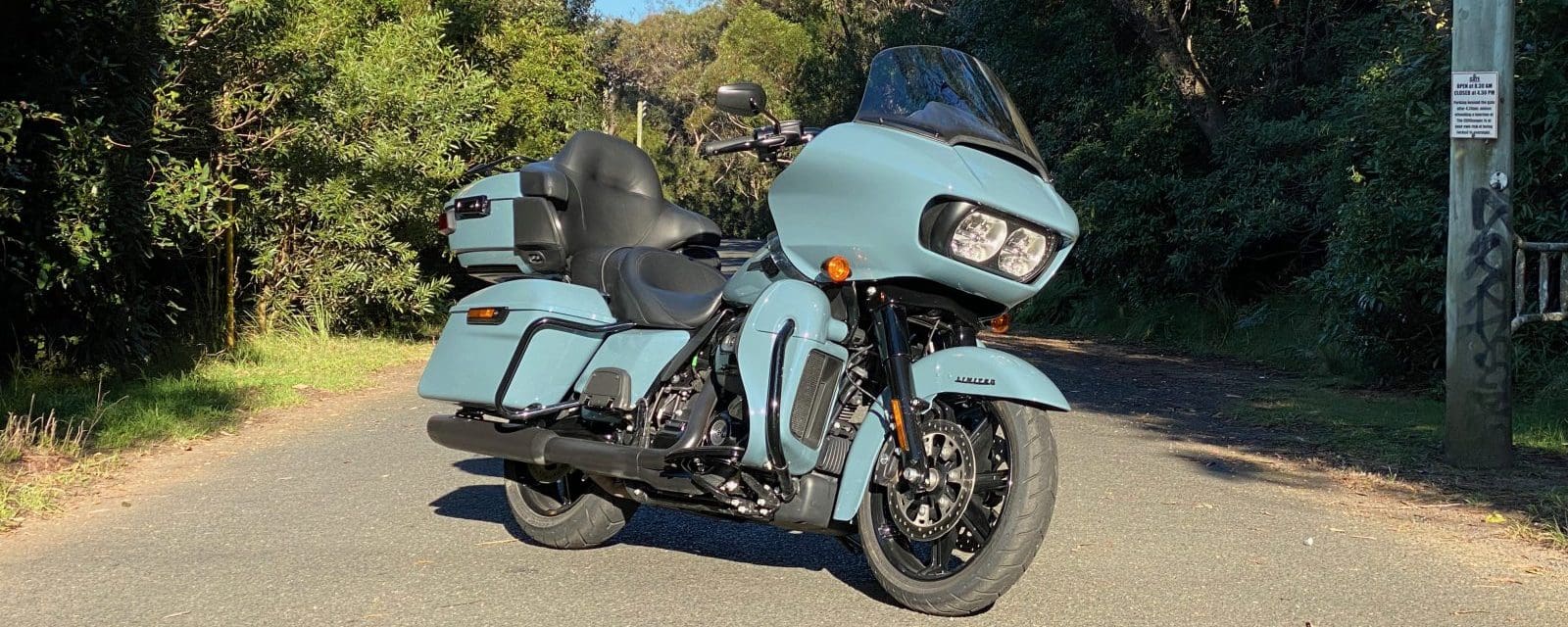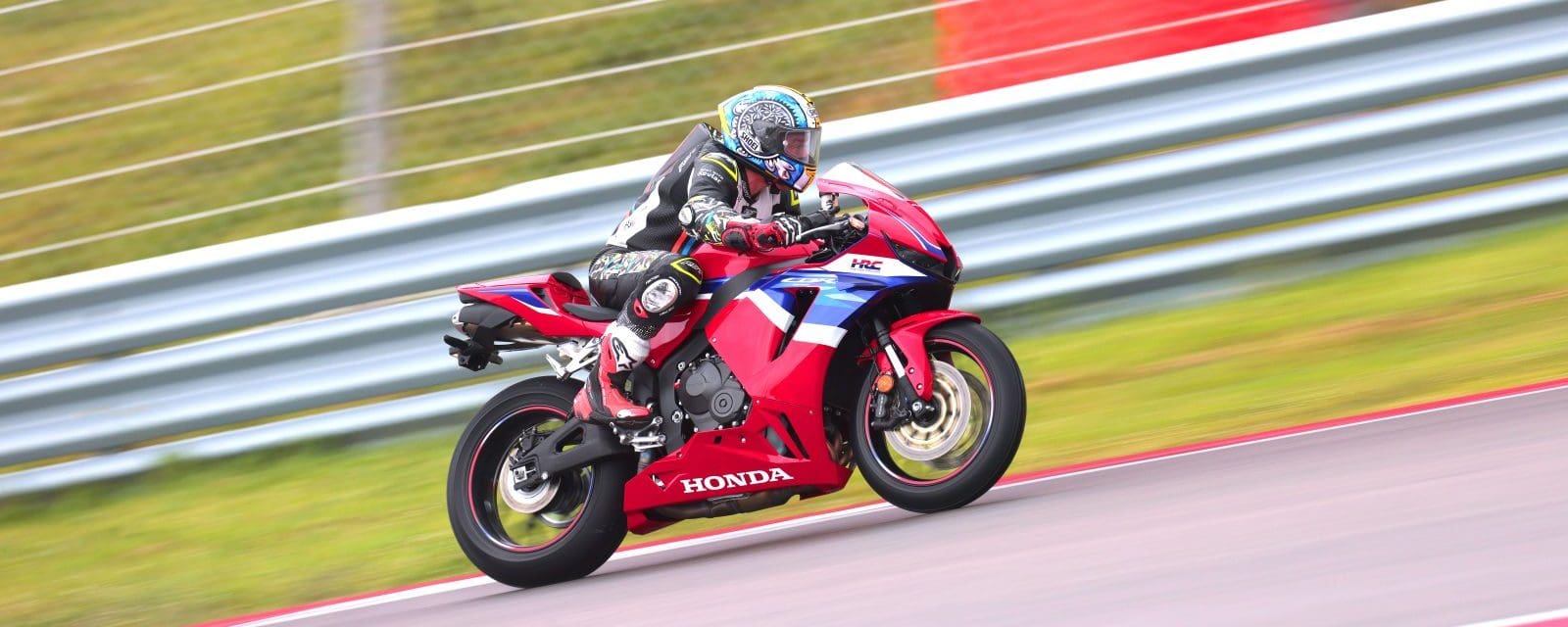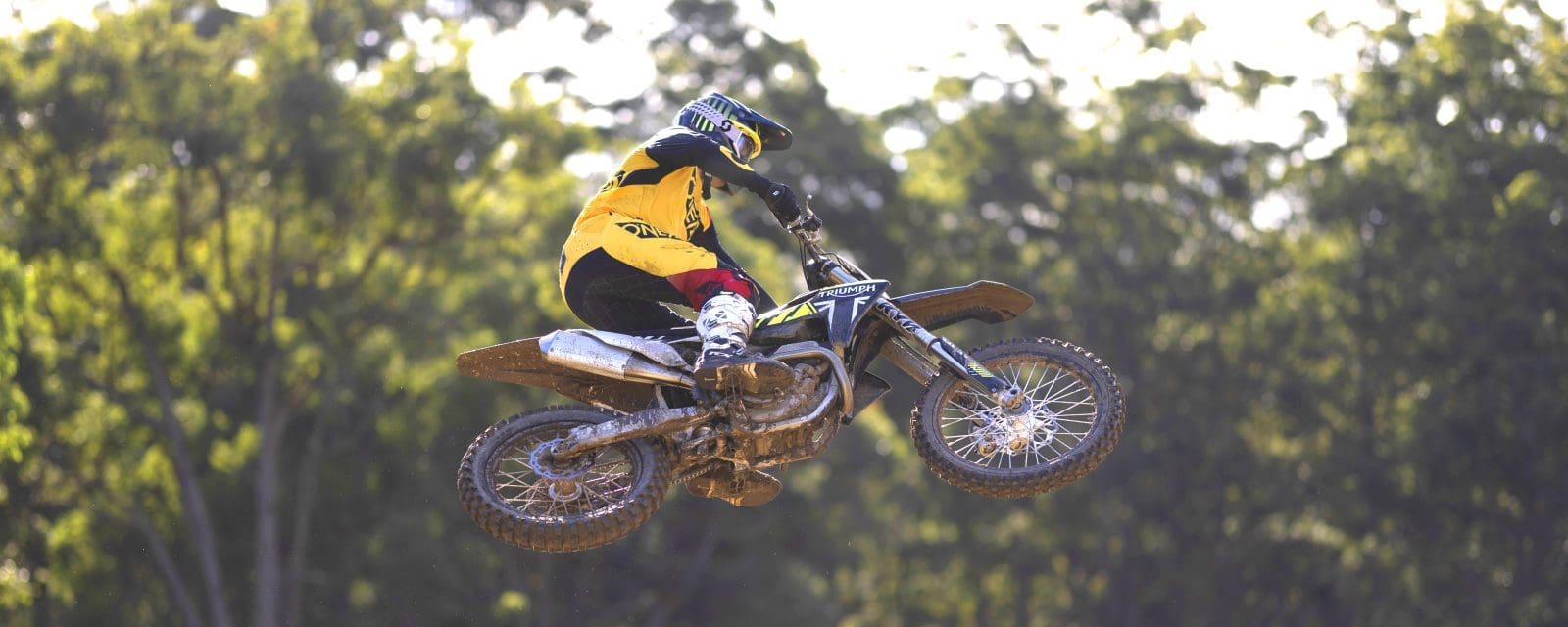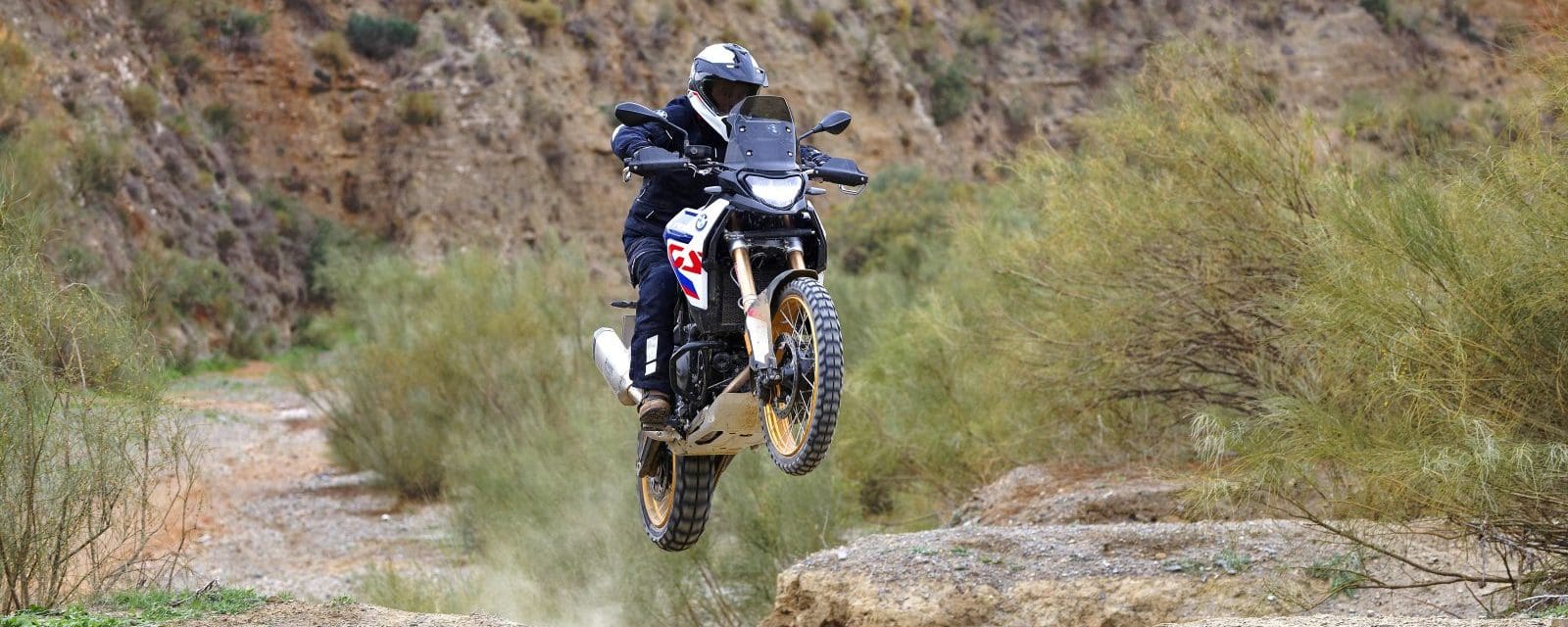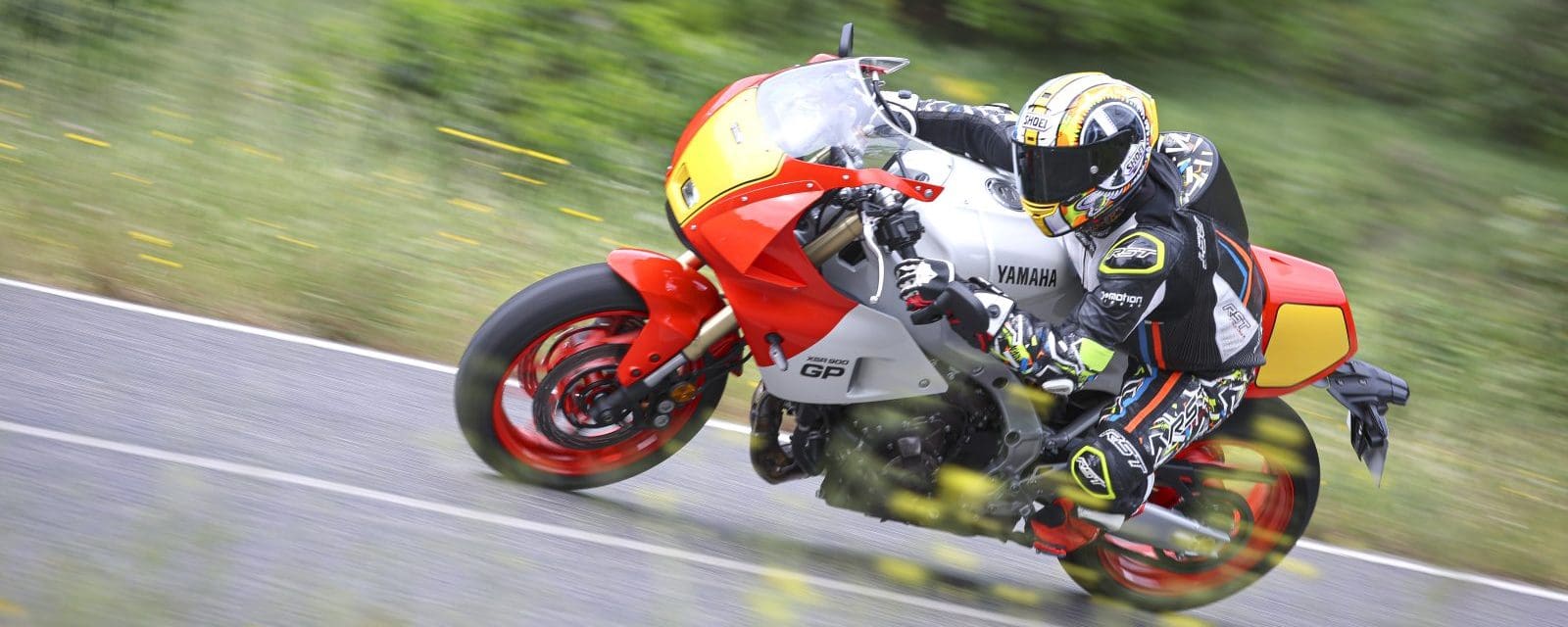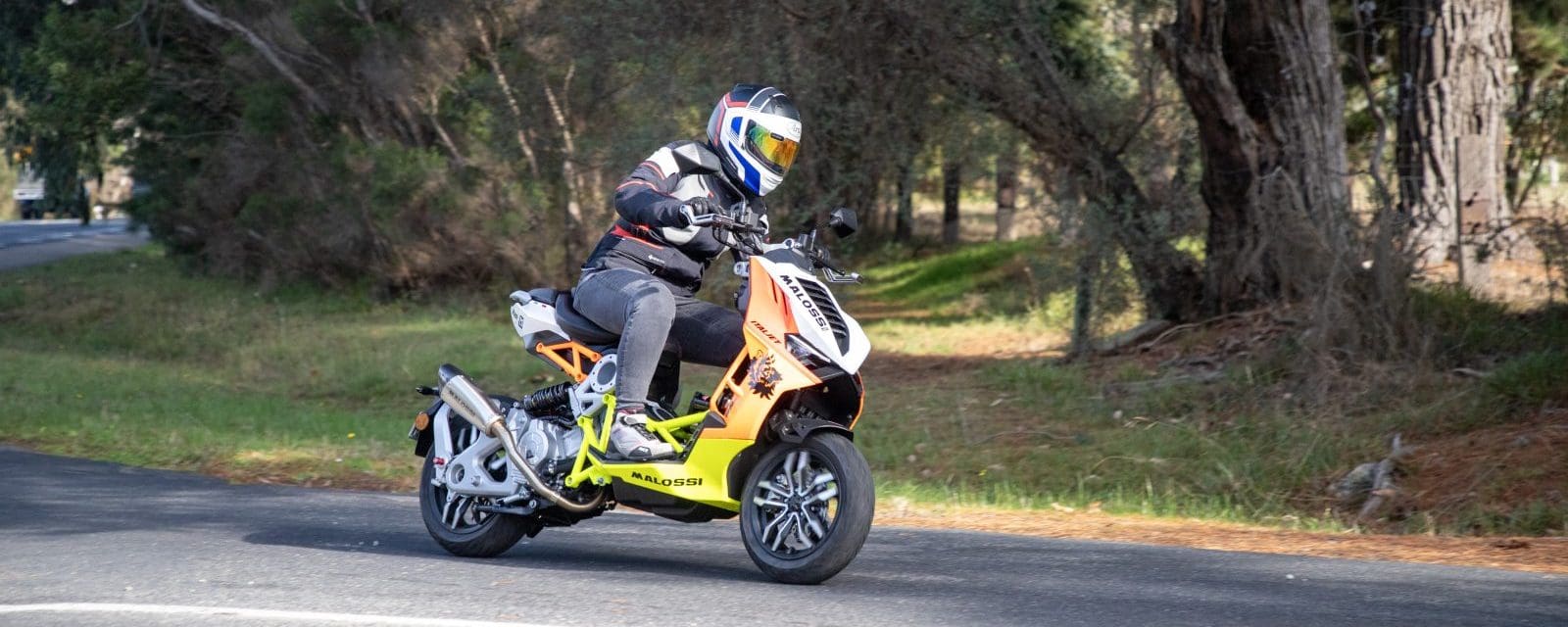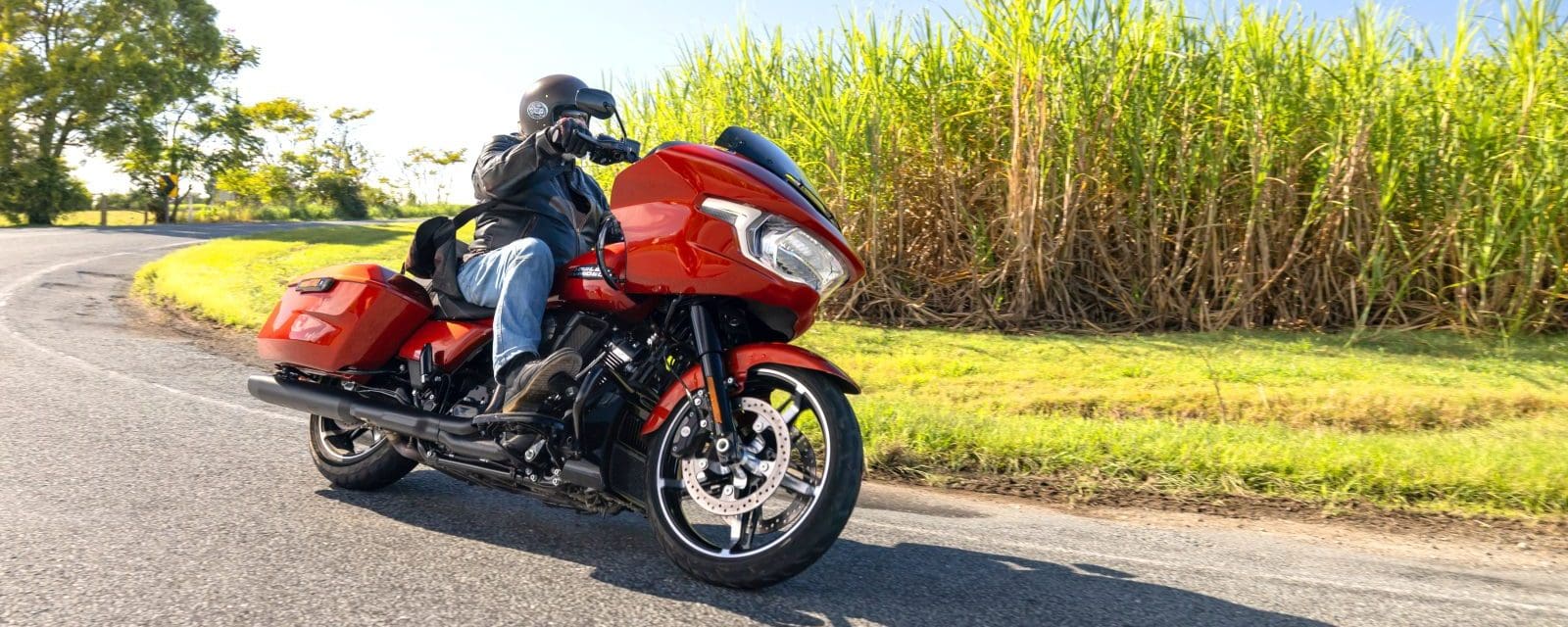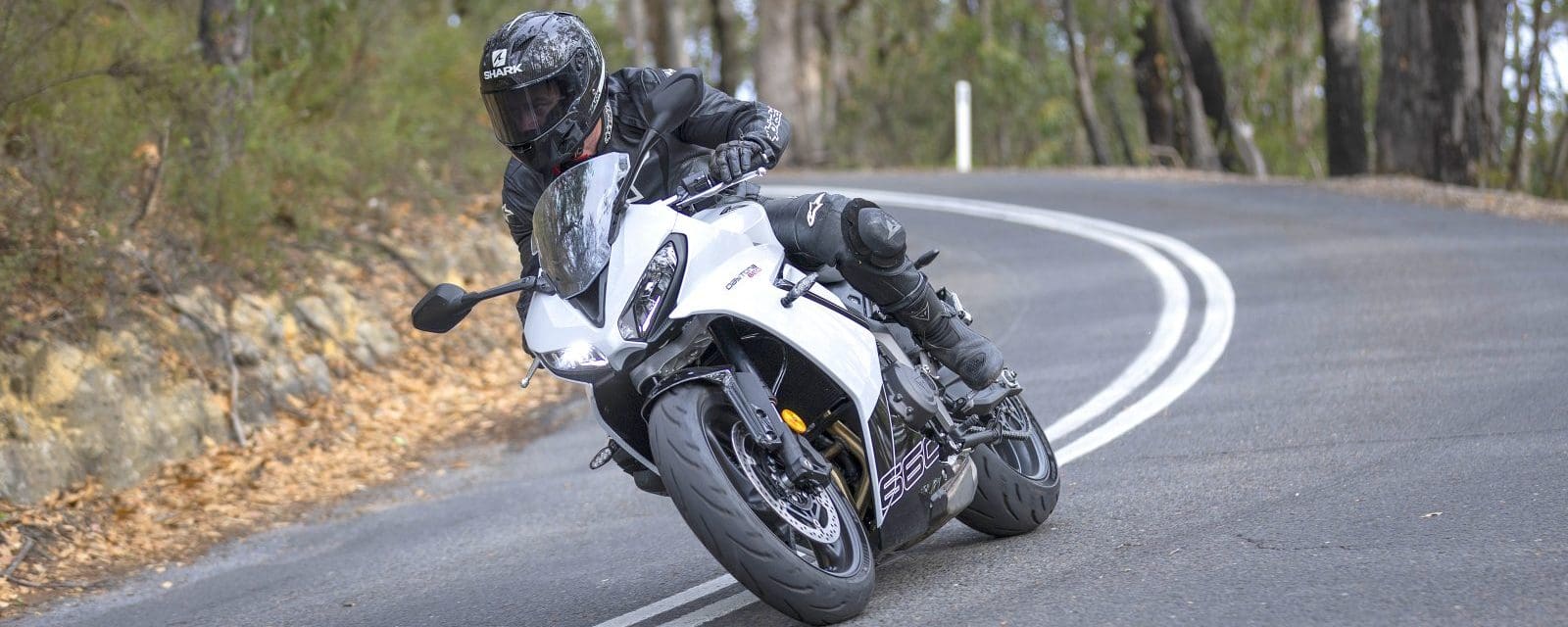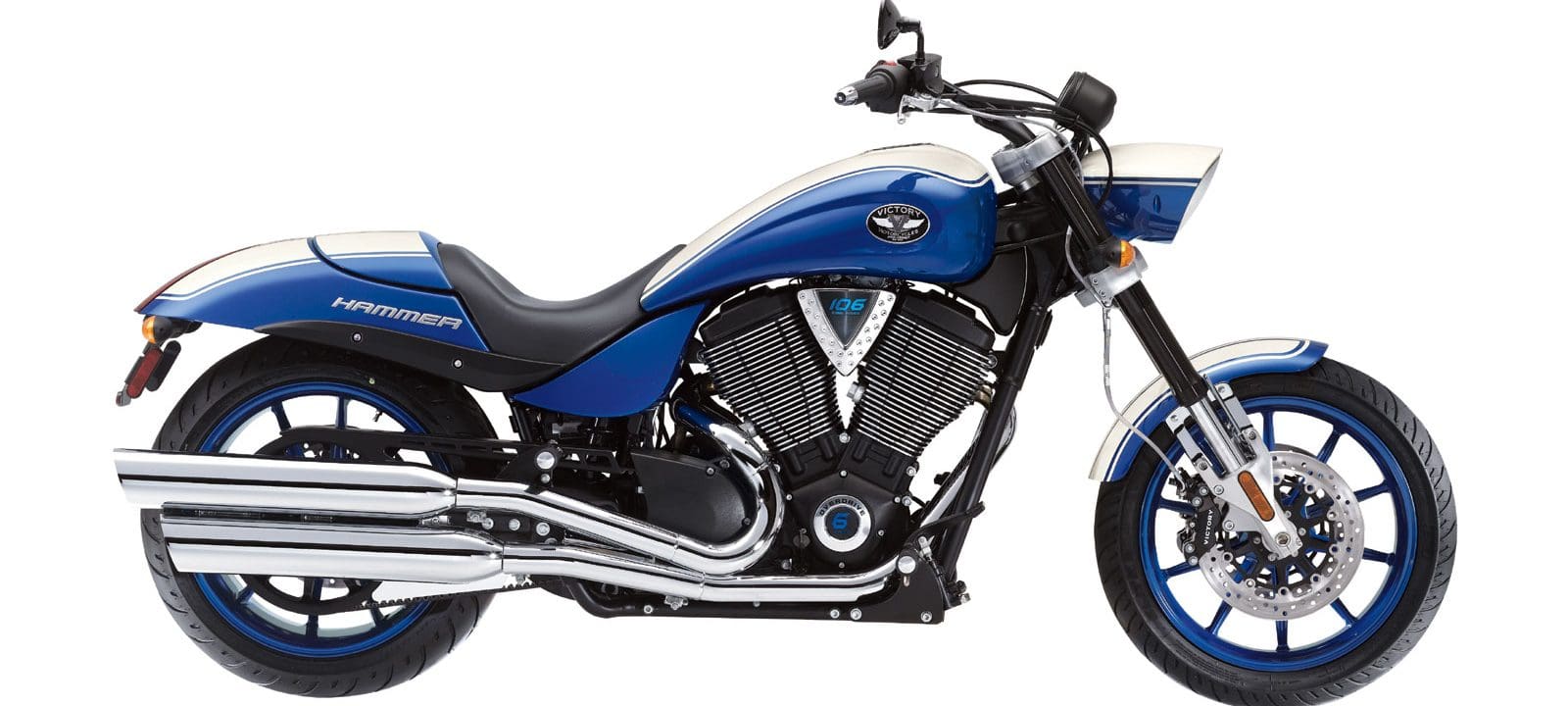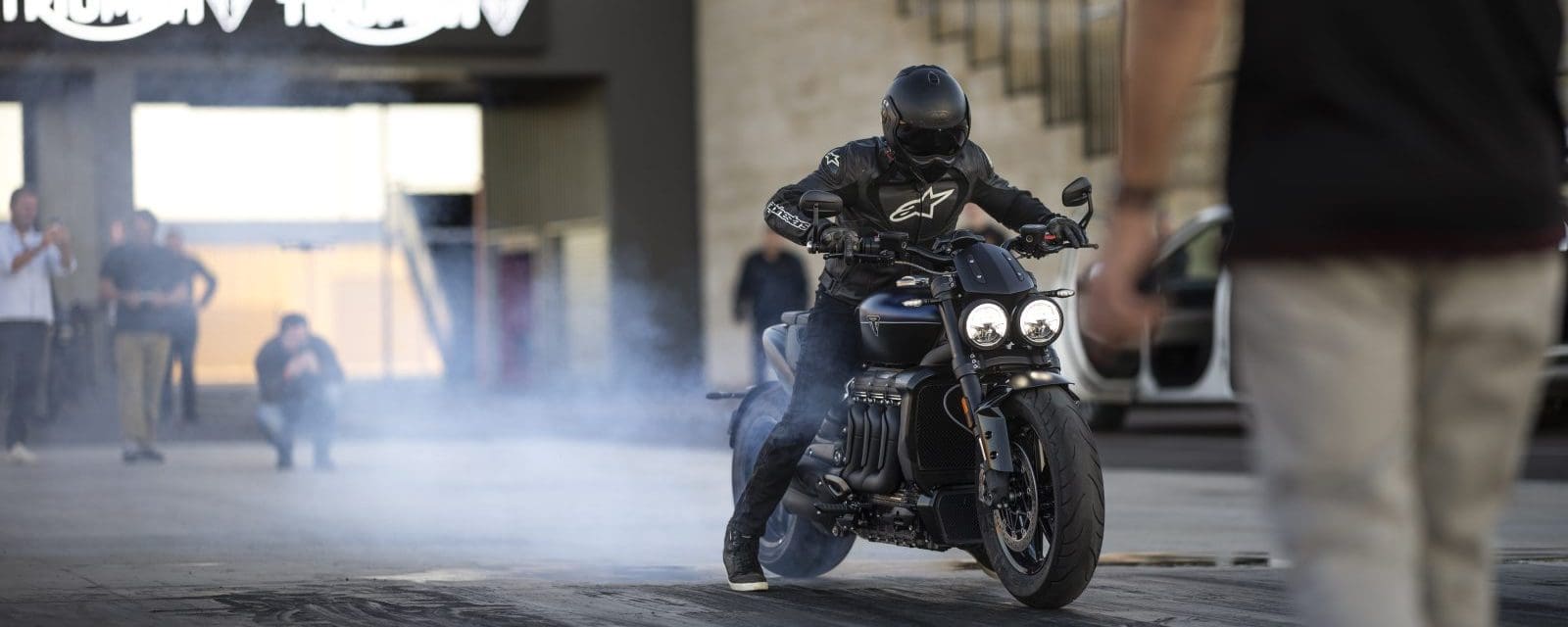Another day, another variation of Yamaha’s MT range. By rights we should all be getting a little sick of these models by now, but in reality nothing could be further from the truth as each time a new MT appears, it’s even better than the last one! And the XSR900 is no exception.
Following on from the XSR700 that Yamaha launched a few months ago, the XSR900 uses the MT-09 as a base and gains a few bells and whistles to give it a retro theme. Like the parallel twin, the XSR900 triple gets round head and tail lights, a cool round LCD dash, aluminum details, a new style of tank cover and a slightly modified subframe that not only subtly alters the riding position, it also boosts the XSR’s seat height by 15mm. Add to this the 2016 updates that the MT-09 is also receiving, which include altered fuel maps, a slipper clutch with a 20 per cent lighter lever action, traction control and firmer suspension settings, and you have a bike that as well as looking very different to the current MT, also rides considerably better.
One of the criticisms that has been leveled at the MT-09 is the fact its supermoto-style riding position and longer travel suspension give it a tendency to rock back and forth when pushed hard. By altering the damping rates on the XSR and moving the rider back 5cm in the saddle thanks to the new seat and tank, this sensation has been removed from the XSR and you can now corner with far more confidence. It feels much more like a conventional naked when it comes to its handling and the old pitching and rolling sensation has almost completely vanished. Now you can really push the front Bridgestone S20 tyre (sadly not the funky Pirelli Phantoms the XSR700 has, they were deemed not up to the task!) into bends and once the apex is in sight, allow the glorious triple engine to fire you out the other side.
Although the majority of the triple has remained unchanged (the exhaust is matte black and the end can round while the engine cases have aluminum details) it has received a few tweaks that, like the chassis, make a noticeable difference to its character. The slipper clutch is pleasant, but the three new fuel maps (STD, A and B) go a long way to sorting out the slightly snatchy throttle response that was evident on the MT. Although as usual for a Yamaha, A mode is generally best avoided unless you like to ride like a kangaroo. Yet the most interesting update is the traction control system.
On a bike as renowned for playing the fool as the MT, the addition of traction control could have put a bit of a damper on the party, however on the XSR it isn’t an issue. While you can only turn it off completely when the bike is stationary, leave it in the least sensitive ‘1’ mode and you can still bang up the odd wheelie as the TC isn’t worried by a bit of clutch slip in second and a lofted front wheel. For me this is the perfect nakedbike traction control system – it’s there should the back end step out, but it still lets me unleash my inner child when there is someone to show off to. And on the XSR900 you will always have an audience as in the ‘King Kenny’ 60th Anniversary paint it is simply gorgeous and instantly draws a crowd.
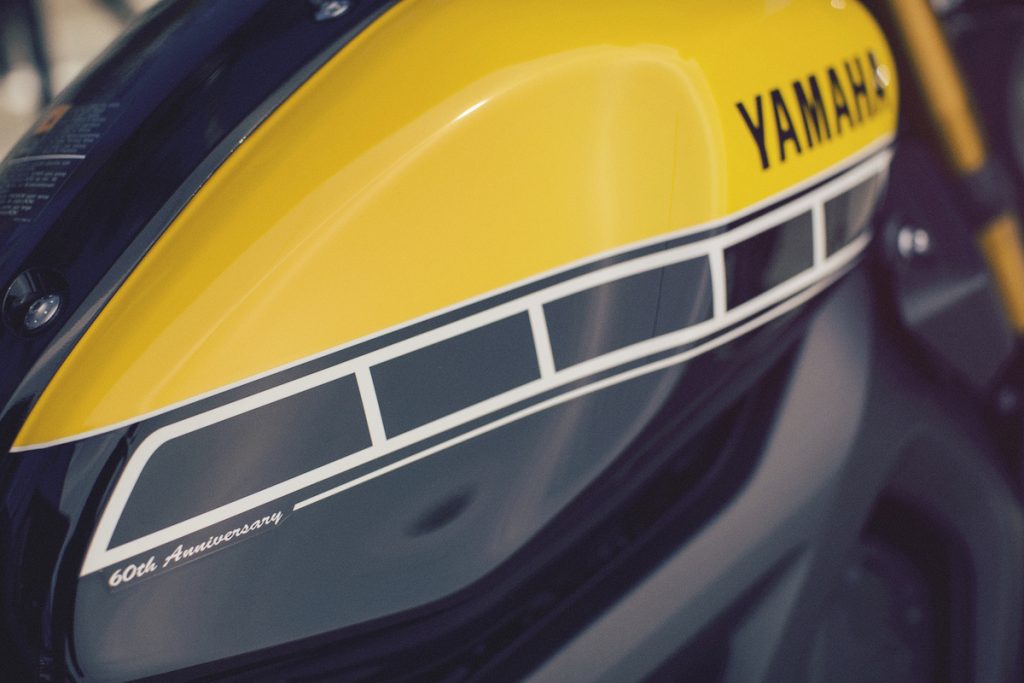
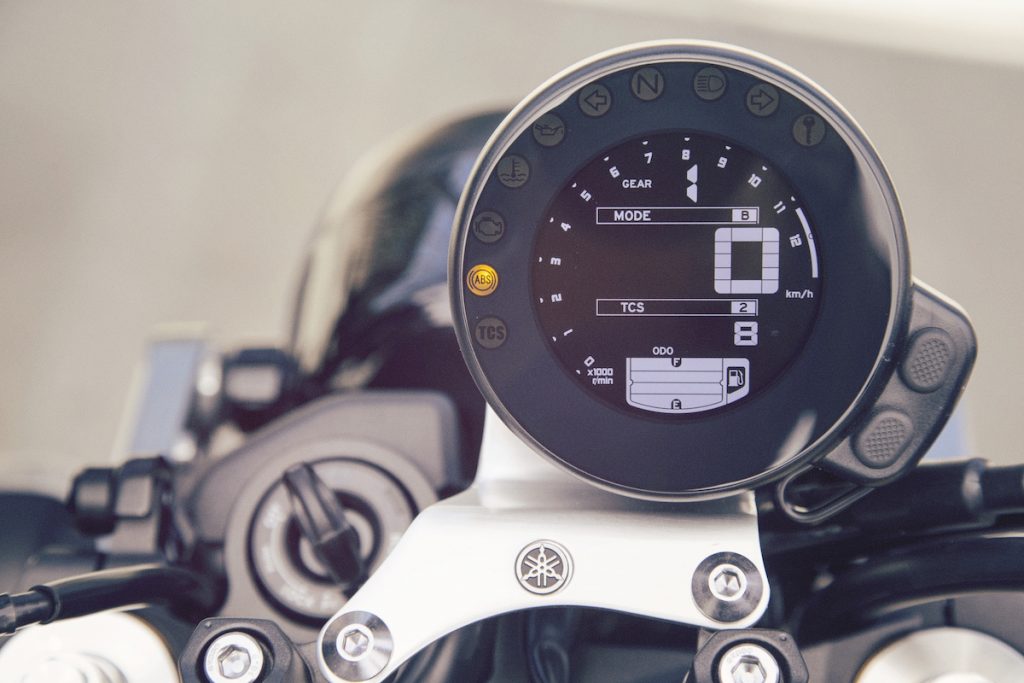
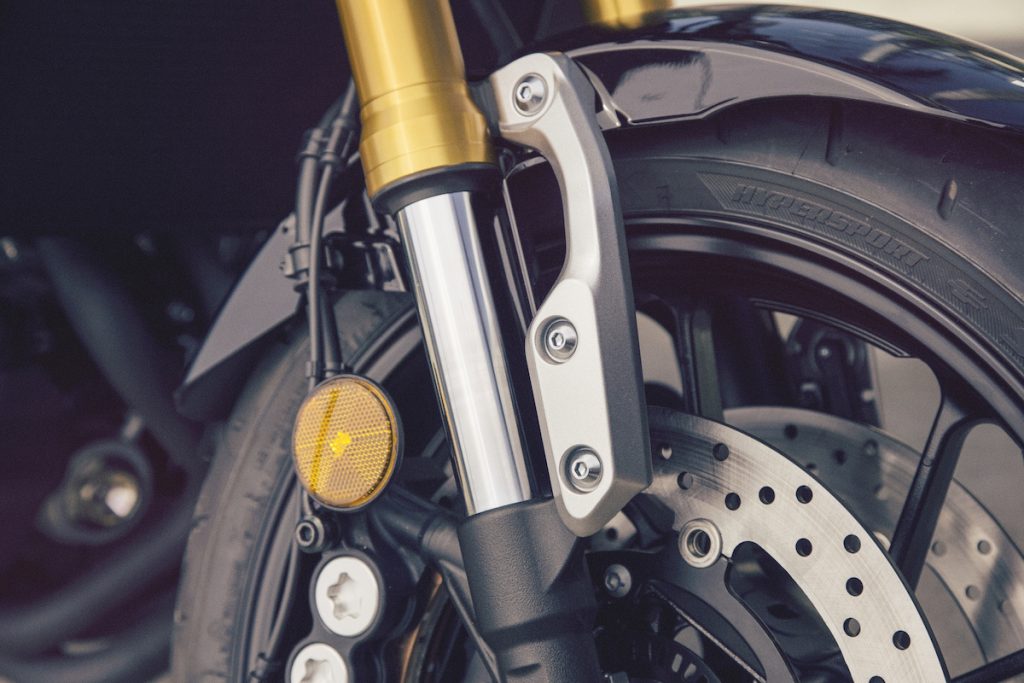
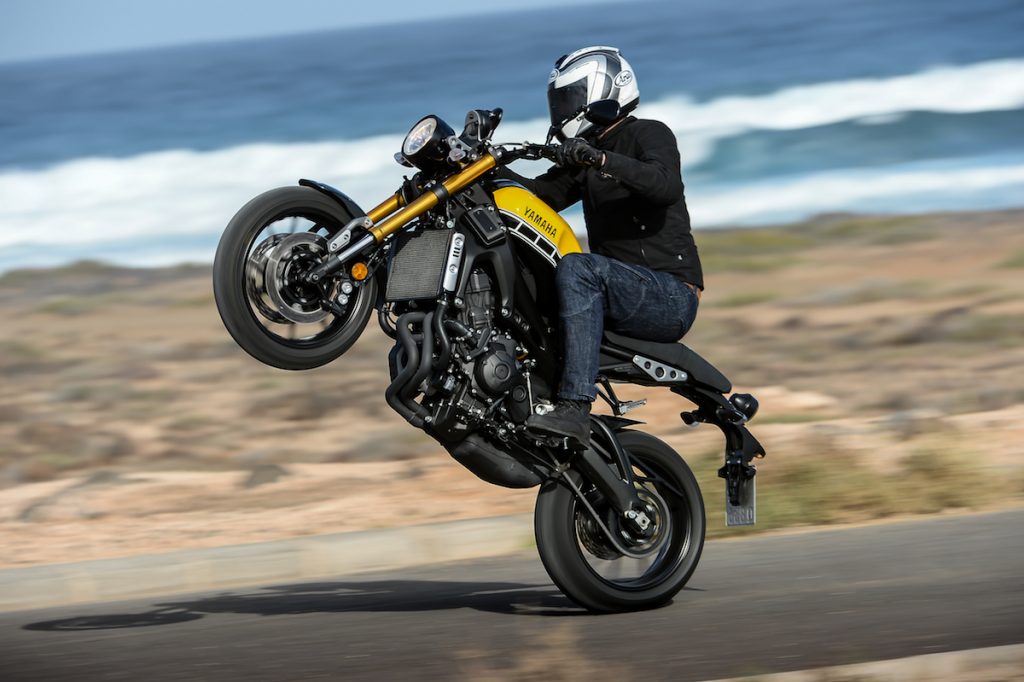
Pros
- Traction control & ABS
- Low price, huge fun factor
- Great styling, especially on the Kenny rep
Cons
- The seat is a bit sticky
- Very easy to misbehave on
- Tank range is quite small
Specs:
2016 Yamaha XSR900
Engine:
Configuration inline triple
Cylinder head DOHC, 12 valves
Capacity 847cc
Bore/stroke 78 x 59.1mm
Compression ratio 11.5:1
Cooling Liquid
Fuelling EFI
Power 84.6Kw @ 10,000rpm
Torque 87.5Nm @ 8,500rpm
Transmission
Type Six-speed
Clutch Wet
Final drive Chain
Chassis
Frame material Aluminium
Frame layout Diamond
Rake 25-degrees
Trail 103mm
Suspension
Front: 41mm inverted forks, adjustable rebound and spring preload
Rear: Monoshock, adjustable rebound and spring preload
Wheels
Cast aluminium
Front: 3.5 x 17 Rear: 5.5 x 17
Tyres:
Front: 120/70-17 Rear 180/55-17
Brakes
Front: Twin 298mm discs, four-piston radial calipers.
Rear: 245mm disc, two-piston caliper.
Control: ABS
Dimensions
Weight 195kg (wet, claimed)
Seat height 830mm
Max width 815mm
Max height 1140mm
Wheelbase 1440mm
Fuel capacity 14L
Performance
Fuel consumption 5.2L/100km
Top speed 225km/h (est)
Colours: 60th Anniversary, matt grey, rock slate
